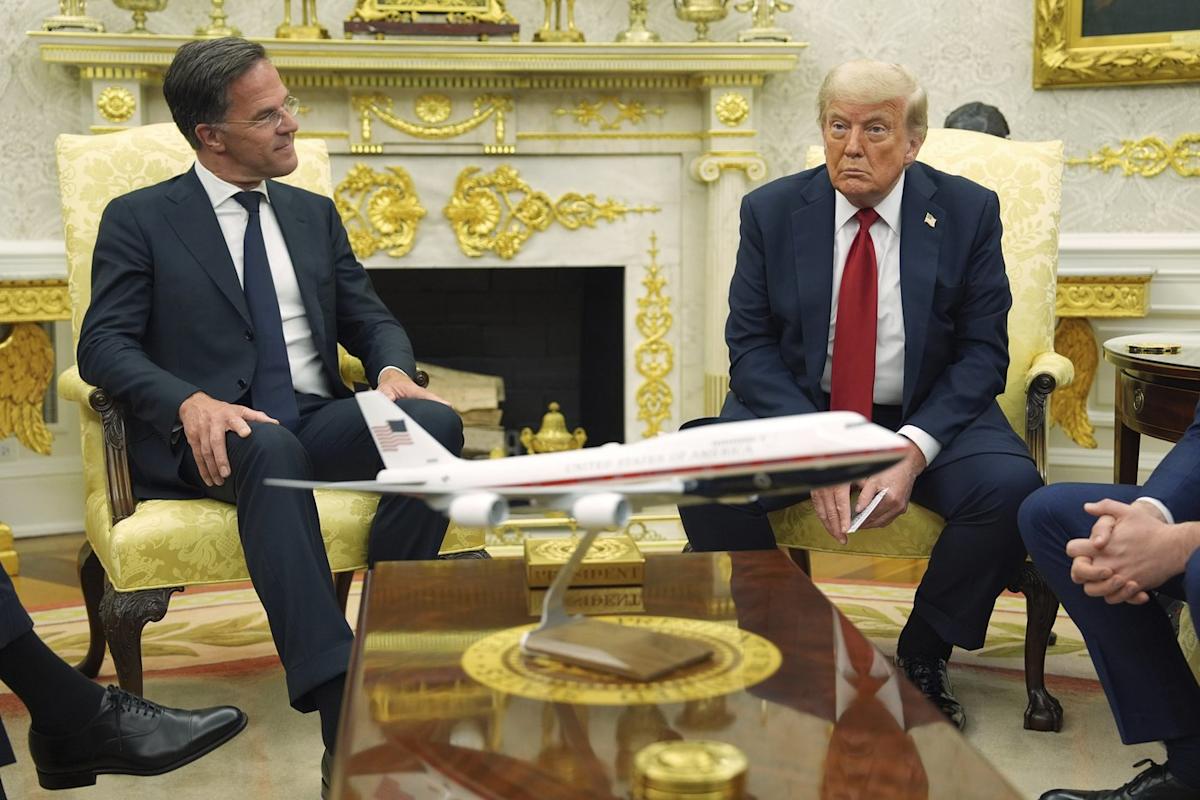U.S. President Donald Trump said on Monday that the letters he sent to Prime Minister Mark Carney and other leaders about new tariff rates are “the deals,” as Carney prepares to meet with his cabinet on tariffs and the trade negotiations.
Trump appeared to be losing patience with his administration’s efforts to make trade deals with nations around the world. The president has been sending letters to trading partners, including Canada, threatening to impose higher tariff rates on Aug. 1. The letter addressed to Carney last week said Canada would be hit with 35 per cent tariffs but the White House later said it would not include goods compliant with the Canada-U.S.-Mexico Agreement on trade.
“I watched a show this morning and they were talking about, ‘Well when’s he going to make the deal?’ The deals are already made. The letters are the deals. The deals are made. There are no deals to make,” Trump said during an Oval Office meeting with NATO Secretary-General Mark Rutte.
“They would like to do a different kind of a deal and we are always open to talking.”
Trump on Saturday posted a letter to Mexican President Claudia Sheinbaum on social media that said Mexico would be hit with a 30 per cent rate.
A separate letter to European Commission President Ursula von der Leyen declared a 30 per cent rate for the European Union.
There is no clarity on why Canada is facing a higher tariff than either Mexico or the EU.
Christopher Sands, director of Johns Hopkins University’s Center for Canadian Studies, said Canada and Mexico are the top two U.S. trade partners, and Canada is a national security partner as well.
“Now, Canada is hit with a 35 (per cent) tariff while Mexico only gets a 30 (per cent) tariff,” Sands said in a text message. “Carney went the extra mile for Trump until now but he may not have the public support in Canada to continue it for long.”
In a recent Substack post, Sands noted Carney has been proactive on defence and border security spending. It would be hard for the United States to claim Canada was not bargaining in good faith, Sands wrote. While Canada was “nice,” it got hit with a tariff nearly as high as the 50 per cent Brazil is facing, he wrote.
Carney and Trump have been negotiating what they have referred to as a new economic and security pact since the pair met at the White House in early May. At the G7 summit last month, Carney said they had set July 21 as a deadline for reaching that deal.
Trump moved that to Aug. 1 last week unilaterally.
Story Continues
